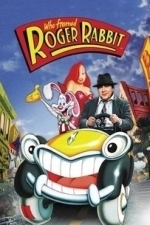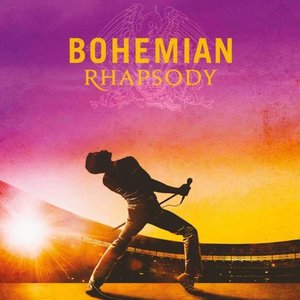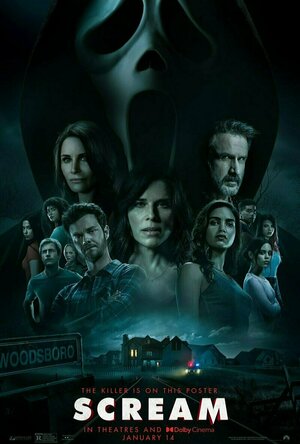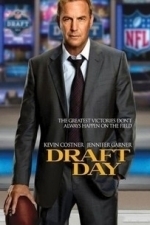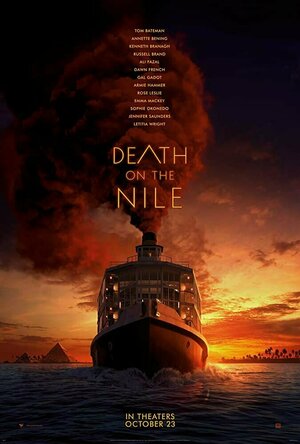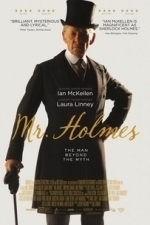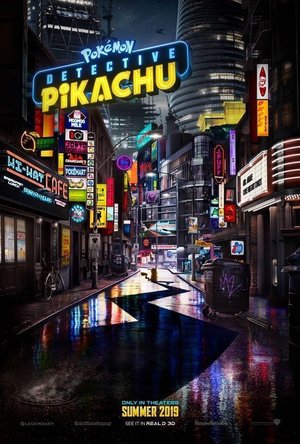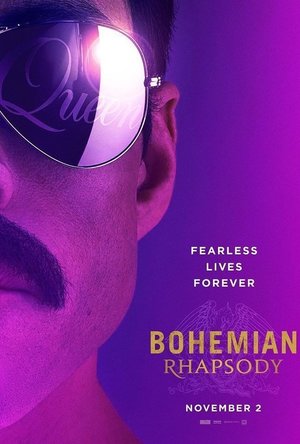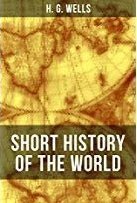Search
Search results
Andy K (10823 KP) rated Who Framed Roger Rabbit (1988) in Movies
Jun 12, 2018
Who remembers Roger Rabbit?
My first summer job was in 1988 (I'm old) so I remember watching Who Framed Roger Rabbit over and over and loving it more each time I watched.
The late, great Bob Hoskins was able to hold his own against the melee of cartoon extravaganza put forth all around him. The story is fun and exciting with lots of twists and turns, but to just be a part of the cinema roller-coaster that is this film was all part of the fun.
Or seeing Bugs Bunny and Mickey Mouse together. Or seeing a piano duel with Donald and Daffy Duck.
I have never been a big fan of remakes, but they could probably do a great remake if Zemeckis decided to remake his own movie. I would be a fan of that.
The late, great Bob Hoskins was able to hold his own against the melee of cartoon extravaganza put forth all around him. The story is fun and exciting with lots of twists and turns, but to just be a part of the cinema roller-coaster that is this film was all part of the fun.
Or seeing Bugs Bunny and Mickey Mouse together. Or seeing a piano duel with Donald and Daffy Duck.
I have never been a big fan of remakes, but they could probably do a great remake if Zemeckis decided to remake his own movie. I would be a fan of that.
Martin Lakin (278 KP) rated Bohemian Rhapsody - The Soundtrack by Queen in Music
May 8, 2019
Being a fan of Queen it is very difficult to stay biased while reviewing this soundtrack. Personally I would recommend it to anyone from a novice to a know it all. Highlights for me would be the live tracks that this album includes, especially "Now I'm Here" for me that is the live song that first got me really into Queen so has a special place in my heart. The inclusion of some of the tracks from LiveAid was brilliant as well, however I would have preferred the soundtrack to have the whole Live Aid set. I did like the inclusion of "Doing All Right" by Smile (Brian May and Roger Taylor's band before Queen) adding an insight to their beginnings. Overall it is a brilliant soundtrack and one I recommend to all.
Kevin Phillipson (10072 KP) rated Scream (2022) in Movies
Jan 20, 2022
Melissa Barrera (1 more)
The gore
Hello Sidney
Watched today I liked it it alot as a long time fan of the scream movies going back to to 1997 when I first saw the first one and loving it even getting the twist after the first half an hour and seeing all the sequels as well at the cinema over the years the second film is still my favourite of all the five. When I heard the team behind ready or not was gonna make this movie I was excited cause I loved that movie so I knew what I was gonna get with one. Any way on to the film everything I would expect from a scream movie the gore the creepy voice on the phone played once again by Roger l jackson all the talk about sequels reboots and other stuff not forgetting the return of Sidney Gail and dewey it wouldn't be the without them . I also liked at the end when they put for wes a fitting tribute to wes craven. Also once again worked out the twist again but I won't give it away here spoilers
Gareth von Kallenbach (980 KP) rated Draft Day (2014) in Movies
Aug 6, 2019
Draft Day wants to be the Moneyball of the National Football League. Probem is, Moneyball was based on a true story. Draft Day is pure fiction and it’s not particularly good fiction. Sure, there are realistic elements of what goes on behind the scenes on draft day, but the story that surrounds makes you wonder if this was really the best they could come up with to shine the spotlight on one of the biggest days of the year for football fans and NFL prospects.
Sonny Weaver (Kevin Costner) is a general manager of the Cleveland Browns. Now that’s a real team, although many people would question that fact. Weaver manages to acquire the number one draft pick on draft day and the movie is essentially about him trying to decide who to pick. Focusing on three potential players, Sonny has the heavy responsibility of making the right choice.
In addition to facing this daunting task of making the right decision for his team, Sonny is also wrestling with personal issues, such as a secret girlfriend and living up to his father’s legacy. There are plenty of cameos of stars of the NFL and Roger Goodell weighs in as the NFL commissioner. There were scenes that seemed meaningless in a sense but there’s a twist if you remain interested.
To the casual football fan this might be entertaining. To diehard fans, you probably know most of the goings on behind the scenes on draft day. It’s a backstage view in the day of the life of a GM trying to juggle his way through business and personal decisions on a big stage while facing a ticking clock. The movie does drags here and there but if you need a hit of the NFL drug while waiting for the next season, this might tide you over.
Sonny Weaver (Kevin Costner) is a general manager of the Cleveland Browns. Now that’s a real team, although many people would question that fact. Weaver manages to acquire the number one draft pick on draft day and the movie is essentially about him trying to decide who to pick. Focusing on three potential players, Sonny has the heavy responsibility of making the right choice.
In addition to facing this daunting task of making the right decision for his team, Sonny is also wrestling with personal issues, such as a secret girlfriend and living up to his father’s legacy. There are plenty of cameos of stars of the NFL and Roger Goodell weighs in as the NFL commissioner. There were scenes that seemed meaningless in a sense but there’s a twist if you remain interested.
To the casual football fan this might be entertaining. To diehard fans, you probably know most of the goings on behind the scenes on draft day. It’s a backstage view in the day of the life of a GM trying to juggle his way through business and personal decisions on a big stage while facing a ticking clock. The movie does drags here and there but if you need a hit of the NFL drug while waiting for the next season, this might tide you over.
David McK (3716 KP) rated Death on the Nile (2022) in Movies
Apr 10, 2022
The second of Kenneth Branagh's outing as Agatha Christie's sleuth Poirot, apparently much delayed by the Covid-19 pandemic, and set after The Murder on the Orient Express.
I've never seen that movie.
I have read the book on which it (Murder on Orient Express) is based, though.
As I'm not that big a fan of murder mysteries, I hadn't, however, read the story on which this is based.
Why does that matter?
Simply because it meant I was going into this with no preconceptions; no real idea of what would happen (other than there would be a murder which Poirot has to solve)!
I'm not sure whether the rest of Agatha Christie's Poirot novels are all like this or not - I've only read Murder on Orient Express and Murder of Roger Ackroyd, but I did find heavy similarities between the plots, with both Orient Express and is film largely taking place in a confined location, where there is a limited pool of suspects and where Poirot has to sit down and methodically think his way through.
This movie takes a while to get going, with the first hour or so in particular - I found - dragging quite a bit. I've also heard that there was extensive use of Green screen throughout, which might also explain why some of the Nile scenes just didn't sit quite right.
On the other hand, there is a veritable list of who's who acting talent on the screen: aside from Branagh himself, we have Gal Gadot (as the key victim), Emma Mackey, Arnie Hammer, Russel Brand (surprisingly understated), Annette Benning, Dawn French, Jennifer Saunders (yes, that French and Saunders!), Letitia Wright and Sophie Okonedo - nearly all of whom would have their own motives for the murder.
I've never seen that movie.
I have read the book on which it (Murder on Orient Express) is based, though.
As I'm not that big a fan of murder mysteries, I hadn't, however, read the story on which this is based.
Why does that matter?
Simply because it meant I was going into this with no preconceptions; no real idea of what would happen (other than there would be a murder which Poirot has to solve)!
I'm not sure whether the rest of Agatha Christie's Poirot novels are all like this or not - I've only read Murder on Orient Express and Murder of Roger Ackroyd, but I did find heavy similarities between the plots, with both Orient Express and is film largely taking place in a confined location, where there is a limited pool of suspects and where Poirot has to sit down and methodically think his way through.
This movie takes a while to get going, with the first hour or so in particular - I found - dragging quite a bit. I've also heard that there was extensive use of Green screen throughout, which might also explain why some of the Nile scenes just didn't sit quite right.
On the other hand, there is a veritable list of who's who acting talent on the screen: aside from Branagh himself, we have Gal Gadot (as the key victim), Emma Mackey, Arnie Hammer, Russel Brand (surprisingly understated), Annette Benning, Dawn French, Jennifer Saunders (yes, that French and Saunders!), Letitia Wright and Sophie Okonedo - nearly all of whom would have their own motives for the murder.
Darren (1599 KP) rated Mr. Holmes (2015) in Movies
Sep 13, 2019
Characters – Sherlock Holmes is one of the iconic characters in any mystery tale, this time we following him in his latter years, as we follow the three moments, the last case he didn’t solve, the trip to Japan and how he is writing the story about his last case. This character is interesting to find because we see a great mind struggling to remember everything that he should. Mrs Munro is the housekeeper looking after Sherlock while he focuses on his projects and bees, she does want to move away with her son because she finds Sherlock more in need of a nurse than a housekeeper. Roger is her young son that Sherlock takes under his wing, he is eager to learn more about his stories and the bees which can leave him in trouble at times. Tamiki has invited Sherlock to Japan, claiming to be a big fan, but he has different motives for this, we don’t really see enough of this character though.
Performances – Ian McKellen is fantastic in the leading role, but could we expect anything less from one of the greatest of all times? Laura Linney has always been able to mould herself into any supporting character and here is no different. Milo Parker is good for a child star, nailing the important scenes and keeping his innocence about him. Hiroyuki Sanada is a man we would have liked to have seen more in this film, I feel there is a lot more that we could have had from his character.
Story – Sherlock Holmes, the icon, the legend, the detective that solves every case, is now old and trying to put together parts of his memory o finish a final book, as he tries to remember the chapters of his life. Following the three different stages of his elderly life, can in places become confusing, but everything is tied up by the end and plays into the idea of what is real or part of a story well. The pace of the story is slow in places which doesn’t help keep on top of everything though.
Mystery – The mystery side of the film, comes off slow, we have a couple of mysteries Holmes wants to solve, but we never get left in a position to want to see them unfold.
Settings – The settings play into the late 40s well, Japan is haunting for this, the beach/cliff top location looks beautiful too.
Scene of the Movie – Japan and the aftermath.
That Moment That Annoyed Me – It is very slow.
Final Thoughts – This is a slow mystery movie that does focus on certain parts of the later life of a Holmes figure which is different as it is him battle against his own mind while trying to remember or solve the cases.
Overall: Slow, but interesting.
Performances – Ian McKellen is fantastic in the leading role, but could we expect anything less from one of the greatest of all times? Laura Linney has always been able to mould herself into any supporting character and here is no different. Milo Parker is good for a child star, nailing the important scenes and keeping his innocence about him. Hiroyuki Sanada is a man we would have liked to have seen more in this film, I feel there is a lot more that we could have had from his character.
Story – Sherlock Holmes, the icon, the legend, the detective that solves every case, is now old and trying to put together parts of his memory o finish a final book, as he tries to remember the chapters of his life. Following the three different stages of his elderly life, can in places become confusing, but everything is tied up by the end and plays into the idea of what is real or part of a story well. The pace of the story is slow in places which doesn’t help keep on top of everything though.
Mystery – The mystery side of the film, comes off slow, we have a couple of mysteries Holmes wants to solve, but we never get left in a position to want to see them unfold.
Settings – The settings play into the late 40s well, Japan is haunting for this, the beach/cliff top location looks beautiful too.
Scene of the Movie – Japan and the aftermath.
That Moment That Annoyed Me – It is very slow.
Final Thoughts – This is a slow mystery movie that does focus on certain parts of the later life of a Holmes figure which is different as it is him battle against his own mind while trying to remember or solve the cases.
Overall: Slow, but interesting.
Lee (2222 KP) rated Pokémon: Detective Pikachu (2019) in Movies
May 18, 2019
Much better than I was expecting
I never really 'got' Pokémon. I've never watched it, never read it, never had any interest in it whatsoever. I actually gave the game Pokémon Go a shot, as I was already a big fan of Niantic's previous game, Ingress. But swiping balls randomly at floating animated creatures on the screen? Yeah, not really my idea of fun. So, why then would I go watch a Pokémon movie where, for some strange reason, Deadpool is voicing the lead character, a cute little fluffy Pikachu? Well, in the interests of providing balanced, impartial Smashbomb reviews that's why. And, because my nephew asked me to take him...
I guess one of my concerns before heading in to see Detective Pikachu was how exactly the Pokémon we're going to be portrayed. If this was going to be some kind of Smurfs or Alvin and the Chipmunks style movie, where over-the-top CGI characters are thrust upon the world of over-the-top human characters in some crazy adventure aimed at six year olds, then I wouldn't be very happy. Thankfully, it turned out to be the compete opposite.
21 year old Tim receives news that his father, top detective Harry Goodman, has gone missing following a car accident, and is presumed dead. He travels to his father's place of work - Ryme City, a modern metropolis where humans and Pokémon live happily side by side - and joins forces with Harry's Pokémon partner, Detective Pikachu. Tim discovers that he can understand what the wise cracking, cute little Pikachu is saying to him and they set about trying to get to the bottom of the mystery surrounding Harry's suspected death.
I was pretty impressed from the offset just how well this movie is presented. It's set in a world where humans and these strange, wonderful creatures live alongside each other in harmony, yet the Pokémon are never really presented in that wacky manner that I described earlier with other CGI character movies. It's extremely well done and feels both natural and believable. And because the focus of the movie is more on the story, and the mystery to be solved, rather than revelling in the fact that this is a live action Pokémon movie, it made it all the more enjoyable. This felt to me something more alike to 'Who Framed Roger Rabbit'. And I really liked it!
Better still, I rarely felt as though I needed any prior knowledge of Pokémon in order to appreciate and enjoy it. There's a brief explainer near the beginning regarding the whole trainer/balls/battles concept, which didn't make it any less ridiculous as far as I'm concerned, but that just didn't matter as it wasn't really necessary to the main plot. Having never experienced Pokémon in any other media form, I obviously can't comment on how faithful this is to any of that, but as a family movie I'd say this is a pretty big hit.
I guess one of my concerns before heading in to see Detective Pikachu was how exactly the Pokémon we're going to be portrayed. If this was going to be some kind of Smurfs or Alvin and the Chipmunks style movie, where over-the-top CGI characters are thrust upon the world of over-the-top human characters in some crazy adventure aimed at six year olds, then I wouldn't be very happy. Thankfully, it turned out to be the compete opposite.
21 year old Tim receives news that his father, top detective Harry Goodman, has gone missing following a car accident, and is presumed dead. He travels to his father's place of work - Ryme City, a modern metropolis where humans and Pokémon live happily side by side - and joins forces with Harry's Pokémon partner, Detective Pikachu. Tim discovers that he can understand what the wise cracking, cute little Pikachu is saying to him and they set about trying to get to the bottom of the mystery surrounding Harry's suspected death.
I was pretty impressed from the offset just how well this movie is presented. It's set in a world where humans and these strange, wonderful creatures live alongside each other in harmony, yet the Pokémon are never really presented in that wacky manner that I described earlier with other CGI character movies. It's extremely well done and feels both natural and believable. And because the focus of the movie is more on the story, and the mystery to be solved, rather than revelling in the fact that this is a live action Pokémon movie, it made it all the more enjoyable. This felt to me something more alike to 'Who Framed Roger Rabbit'. And I really liked it!
Better still, I rarely felt as though I needed any prior knowledge of Pokémon in order to appreciate and enjoy it. There's a brief explainer near the beginning regarding the whole trainer/balls/battles concept, which didn't make it any less ridiculous as far as I'm concerned, but that just didn't matter as it wasn't really necessary to the main plot. Having never experienced Pokémon in any other media form, I obviously can't comment on how faithful this is to any of that, but as a family movie I'd say this is a pretty big hit.
Gareth von Kallenbach (980 KP) rated Bohemian Rhapsody (2018) in Movies
Jul 2, 2019
How many of these reviews are going to start with “Is this the real life? Is this just fantasy?” A lot I am willing to bet. The thing is, it’s a good way to start. Bohemian Rhapsody has been a highly anticipated film for many years. I remember back when they were considering Johnny Depp for Freddie Mercury. Then it was Sasha Baren Cohen. And then they announced Rami Malek, and a majority of the country went, “Who?” Rami Malek is mostly known for his work as the lead in the USA Network series Mr. Robot. He got his start in the Night at the Museum series, and has scene big screen time in Need for Speed and, most recently, Papillion alongside Charlie Hunnam. I think it’s safe to say that after November 2, 2018, people will definitely know who he is.
Named for Queen’s most successful song in their portfolio, Bohemian Rhapsody tells the story of Freddie Mercury and how he rose from being a baggage boy at Heathrow, to a literal rock legend. We see how the band Queen was formed, how they got their name, how they made it big, and what made Queen… well Queen. Rami Malek delivers a powerful performance as the front man of the legendary band. For me, it started off a little shaky at first (coming from someone who is fan of Malek), but he quickly made the role his own and personified the late Mercury like no other can. Even Mercury’s own sister saw Malek in full costume and said, “There’s my Freddie.”
Not to downplay the rest of the cast. Rounding at the rest of the band is Joseph Mazzello as John Deacon, Ben Hardy as Roger Taylor, and Gwilym Lee as Brian May. All delivered powerful performances in their own right, and the chemistry between the 4 actors is undeniable. Veterans Aidan Gillen (as John Reid) and Tom Hollander (Jim Beach) deliver in their supporting roles, as does Lucy Boynton, who played Mary Austin. If some of these names do not seem familiar, get ready to learn a lot of the background of Queen in their rise, fall, and then rise again. Also, Mike Myers makes an appearance for a fun cameo as Ray Foster.
Clearly a majority of the film’s score revolves around the band’s expansive portfolio. But it wasn’t just the in your face, obvious music that was there. They did a great job with subtle melodies or bars from the band’s repertoire hanging in the background of impactful scenes throughout the film. Sometimes you’ll miss it, sometimes it’s obvious, and sometimes it might just make you cry.
The story begins with Mercury meeting Taylor and May, and ends with the ever-famous Live-Aid in 1985. While the film is essentially a love-story dedicated to Mercury, I feel it may have left out the rest of the members of the band. We see May, Taylor and Deacon, but we know little about their outside lives other than fleeting statements about their wives and kids, and what they were studying in university prior to Queen taking off. It’s a shame because Queen was not just about Mercury. The film did a really good job stating this, showing how they all contribute, all support each other, and how they are all different. But the focus is still on one man. Queen, the rock band, is an entity. Not an individual. But, I understand the decision behind the path that was chosen. Mercury, to many, was the embodiment of Queen. I am just glad the movie did put out there that he didn’t feel that way.
All of that aside, this film was fantastic. I have been a fan of Queen since I was in diapers, despite a majority of the band’s career having taken place before I was born. It was good to see this story told on screen, though slightly dramatized at points. It was an excellent telling of the story, and people may learn a lot about Freddie Mercury, like his love of cats, and who the love of his life is. Unless you’re absolutely cold-hearted, expect to get goosebumps as you progress through the band’s rise to the top, and to laugh as you how they interacted and developed their music. The movie is not without flaws, but they are so minor that looking past them is easy. Enjoy the film. Enjoy the music. Rock on.
Named for Queen’s most successful song in their portfolio, Bohemian Rhapsody tells the story of Freddie Mercury and how he rose from being a baggage boy at Heathrow, to a literal rock legend. We see how the band Queen was formed, how they got their name, how they made it big, and what made Queen… well Queen. Rami Malek delivers a powerful performance as the front man of the legendary band. For me, it started off a little shaky at first (coming from someone who is fan of Malek), but he quickly made the role his own and personified the late Mercury like no other can. Even Mercury’s own sister saw Malek in full costume and said, “There’s my Freddie.”
Not to downplay the rest of the cast. Rounding at the rest of the band is Joseph Mazzello as John Deacon, Ben Hardy as Roger Taylor, and Gwilym Lee as Brian May. All delivered powerful performances in their own right, and the chemistry between the 4 actors is undeniable. Veterans Aidan Gillen (as John Reid) and Tom Hollander (Jim Beach) deliver in their supporting roles, as does Lucy Boynton, who played Mary Austin. If some of these names do not seem familiar, get ready to learn a lot of the background of Queen in their rise, fall, and then rise again. Also, Mike Myers makes an appearance for a fun cameo as Ray Foster.
Clearly a majority of the film’s score revolves around the band’s expansive portfolio. But it wasn’t just the in your face, obvious music that was there. They did a great job with subtle melodies or bars from the band’s repertoire hanging in the background of impactful scenes throughout the film. Sometimes you’ll miss it, sometimes it’s obvious, and sometimes it might just make you cry.
The story begins with Mercury meeting Taylor and May, and ends with the ever-famous Live-Aid in 1985. While the film is essentially a love-story dedicated to Mercury, I feel it may have left out the rest of the members of the band. We see May, Taylor and Deacon, but we know little about their outside lives other than fleeting statements about their wives and kids, and what they were studying in university prior to Queen taking off. It’s a shame because Queen was not just about Mercury. The film did a really good job stating this, showing how they all contribute, all support each other, and how they are all different. But the focus is still on one man. Queen, the rock band, is an entity. Not an individual. But, I understand the decision behind the path that was chosen. Mercury, to many, was the embodiment of Queen. I am just glad the movie did put out there that he didn’t feel that way.
All of that aside, this film was fantastic. I have been a fan of Queen since I was in diapers, despite a majority of the band’s career having taken place before I was born. It was good to see this story told on screen, though slightly dramatized at points. It was an excellent telling of the story, and people may learn a lot about Freddie Mercury, like his love of cats, and who the love of his life is. Unless you’re absolutely cold-hearted, expect to get goosebumps as you progress through the band’s rise to the top, and to laugh as you how they interacted and developed their music. The movie is not without flaws, but they are so minor that looking past them is easy. Enjoy the film. Enjoy the music. Rock on.
Kirk Bage (1775 KP) rated Bohemian Rhapsody (2018) in Movies
Mar 3, 2020
In the search for a way to watch the 92nd Academy Awards live from Hollywood tonight I was led to a subscription for Now TV, which is basically the online platform for Sky Cinema. And there I found all the missing films I had yet to see from last year that aren’t available “free” on Amazon Prime or Netflix. I should really have worked it out before now that a free trial might be available, having assumed that a Sky subscription was beyond my means at the moment. Imagine my excitement to not only secure the Oscars but a 7 day pass to catch up on some big titles. It’s the small things in life…
Having made a 20 strong watch list, I wasted no time in heading straight for the Queen biopic, Bohemian Rhapsody, winner of 4 awards last February, including one for Rami Malek as Freddy Mercury that I applauded very loudly at the time, without having seen it, due to my love for him as Elliot Alderson in my favourite TV show of the last 5 years, the incredible and mindbendingly brilliant Mr. Robot.
My connection to Queen as a fan isn’t an especially strong one; I have always thought they were fine, and enjoyed their biggest hits as much as anyone. But it is the story, charisma and undeniable singing talent of Mercury that attracts me. From the opening scenes it is apparent that what we are going to get here is a fairly straightforward, by the numbers recounting of events, punctuated by some serious tunes and some glorious 70s fashions. Having read that this was the main criticism of it going in, it really didn’t bother me at all to find it wasn’t going to make bolder artistic and dramatic choices. It was very much about sitting back and enjoying the show!
In fact, there is something comforting and unchallenging about its format that I liked. The pattern of abc that is a) some background to Freddy’s life, b) a build up to how they came across their big hits, and c) a rendition of that hit, didn’t strike me as cheap, but rather unpretentious and to the point. The whole thing clipped along nicely with very little dead air; Malek is a joy to watch in every moment; the clothes and scenery of the 70s and later 80s is a treat; and the music stands for itself, with you often forgetting how good the tunes are until you hear them in this context.
Of course, at times it is almost laughable how well known facts and details are crow-barred into the narrative, with some of the darker elements glossed over, as if this were almost a Disney retelling. But, again, it doesn’t matter, because as an entertainment it is all so enjoyable. Not to say the dark side of the story isn’t touched upon, because it is to an extent, just that it is clear this is a celebration of a life and a talent, not an exposé. Which is fine. As with the superior Walk The Line, and the recently inferior Rocketman, we know a seedier story of Johnny Cash and Elton John exists, but we accept that revelling in the genius of the music is more fun than trawling through the trash.
Malek is a wonder to behold! It has to be said. Once you (and he) get used to the false teeth and bite down on the energy and drive of Mercury, it is impossible to take your eyes off him! He handles the dramatic moments and nuance of this fragile mind with ease, but it is the performances that stand out: his movement is so fluid and accurate that you forget at times you aren’t watching archive footage, which is some trick! Gwilym Lee and Ben Hardy as Brian May and Roger Taylor are also to be praised for this, despite having less to do. With Joseph Mazzello as John Deacon largely merging into the background inoffensively, much as his real life counterpart did.
There is some solid support too. Lucy Boynton is completely charming if largely uninteresting; Tom Hollander quietly steals several scenes as the lawyer who doesn’t just work for them but idolises them as much as any fan; and an unrecognisable Mike Myers is a lot of fun as the manager who missed out on the vision and lives to regret it. Honourable mention also to Allen Leech as the villain of the piece, who walks the tightrope of cartoonish nastiness with some skill, serving the story well in the latter half.
My favourites parts were, unsurprisingly, the genesis and evolution of the big tunes, which was invariably very satisfying. Love of My Life, We Will Rock You, We are the Champions and of course Bohemian Rhapsody are treated like holy texts, with fascinating detail and a reverence that never seems over-egged. Building to the climax of Live Aid; a twenty minute segment at the end of the film that brings a genuine lump to the throat. The magnitude of the event and its natural energy are so well realised, every minor foible of the film up to that point are forgiven, and you walk away from it feeling elated and glad that this moment exists in music history.
Artistically, it isn’t a movie to get too caried away about, but the art of creating a spectacle that pleases on a basic, uncomplicated level is. Director Bryan Singer knows a trick or two, and the trick here is what is left out. There just isn’t a moment to be bored, and I find myself wishing that films of this kind took a leaf out of that book more often. In conclusion, I think this movie will endure the test of time, which is a lot more than most biopic genre films can say. But who wants to live forever anyway?
Having made a 20 strong watch list, I wasted no time in heading straight for the Queen biopic, Bohemian Rhapsody, winner of 4 awards last February, including one for Rami Malek as Freddy Mercury that I applauded very loudly at the time, without having seen it, due to my love for him as Elliot Alderson in my favourite TV show of the last 5 years, the incredible and mindbendingly brilliant Mr. Robot.
My connection to Queen as a fan isn’t an especially strong one; I have always thought they were fine, and enjoyed their biggest hits as much as anyone. But it is the story, charisma and undeniable singing talent of Mercury that attracts me. From the opening scenes it is apparent that what we are going to get here is a fairly straightforward, by the numbers recounting of events, punctuated by some serious tunes and some glorious 70s fashions. Having read that this was the main criticism of it going in, it really didn’t bother me at all to find it wasn’t going to make bolder artistic and dramatic choices. It was very much about sitting back and enjoying the show!
In fact, there is something comforting and unchallenging about its format that I liked. The pattern of abc that is a) some background to Freddy’s life, b) a build up to how they came across their big hits, and c) a rendition of that hit, didn’t strike me as cheap, but rather unpretentious and to the point. The whole thing clipped along nicely with very little dead air; Malek is a joy to watch in every moment; the clothes and scenery of the 70s and later 80s is a treat; and the music stands for itself, with you often forgetting how good the tunes are until you hear them in this context.
Of course, at times it is almost laughable how well known facts and details are crow-barred into the narrative, with some of the darker elements glossed over, as if this were almost a Disney retelling. But, again, it doesn’t matter, because as an entertainment it is all so enjoyable. Not to say the dark side of the story isn’t touched upon, because it is to an extent, just that it is clear this is a celebration of a life and a talent, not an exposé. Which is fine. As with the superior Walk The Line, and the recently inferior Rocketman, we know a seedier story of Johnny Cash and Elton John exists, but we accept that revelling in the genius of the music is more fun than trawling through the trash.
Malek is a wonder to behold! It has to be said. Once you (and he) get used to the false teeth and bite down on the energy and drive of Mercury, it is impossible to take your eyes off him! He handles the dramatic moments and nuance of this fragile mind with ease, but it is the performances that stand out: his movement is so fluid and accurate that you forget at times you aren’t watching archive footage, which is some trick! Gwilym Lee and Ben Hardy as Brian May and Roger Taylor are also to be praised for this, despite having less to do. With Joseph Mazzello as John Deacon largely merging into the background inoffensively, much as his real life counterpart did.
There is some solid support too. Lucy Boynton is completely charming if largely uninteresting; Tom Hollander quietly steals several scenes as the lawyer who doesn’t just work for them but idolises them as much as any fan; and an unrecognisable Mike Myers is a lot of fun as the manager who missed out on the vision and lives to regret it. Honourable mention also to Allen Leech as the villain of the piece, who walks the tightrope of cartoonish nastiness with some skill, serving the story well in the latter half.
My favourites parts were, unsurprisingly, the genesis and evolution of the big tunes, which was invariably very satisfying. Love of My Life, We Will Rock You, We are the Champions and of course Bohemian Rhapsody are treated like holy texts, with fascinating detail and a reverence that never seems over-egged. Building to the climax of Live Aid; a twenty minute segment at the end of the film that brings a genuine lump to the throat. The magnitude of the event and its natural energy are so well realised, every minor foible of the film up to that point are forgiven, and you walk away from it feeling elated and glad that this moment exists in music history.
Artistically, it isn’t a movie to get too caried away about, but the art of creating a spectacle that pleases on a basic, uncomplicated level is. Director Bryan Singer knows a trick or two, and the trick here is what is left out. There just isn’t a moment to be bored, and I find myself wishing that films of this kind took a leaf out of that book more often. In conclusion, I think this movie will endure the test of time, which is a lot more than most biopic genre films can say. But who wants to live forever anyway?
BookblogbyCari (345 KP) rated A Short History of the World in Books
Aug 5, 2018
Best known for his classic fiction, HG Wells also wrote a non-fiction book summarising the history of the world, going from the history of the solar system, right up to the date the book was published in 1922.
As I hoped, the book often reads like a novel, with 67 distinct sections, each like a mini story. In order to fit the history of the whole world into one book, by nature the story telling ranges from nice and rapid, to a little too rapid. I found it rather like a catalogue of numerous interesting little nuggets of information. Despite covering events from all over the world, the topics often flow seamlessly from one topic to the next. Due to so many overlapping topics, this history of the world isn't told in a linear purely chronological pattern, but has to go backwards a little, now and again.
At various times throughout, the stories are gripping and Wells successfully brings history to life. I particularly liked the various sections on religious leaders. Appropriately, Wells tackles religion as would any unbiased historian-become storyteller. I also enjoyed the beginning, where Wells paints a crystal clear picture of our solar system and the vast empty space that our dramas are within. His description of our galaxy sounds nothing short of beautiful.
The book was meant to be predominantly factual, but Wells did include a substantial amount of speculation and opinion. This does not distract from the storyline, but adds value in generating the concepts of the time periods.
It covers progress and prosperity as much as carnage and decimation, and provides good explanations of everything it covers. (Although it would benefit from more illustrations). At times it feels detail heavy but also gives the reader a feel for each age - the book is not limited to which country went to war with which country and when, but also examines changes in ways of thinking through the ages. Including the Ancient Greek philosophers, Arabian progress in maths and science, the advent of experimental science, and the development of political and social ideas in Wells’ time.
I was reassured to learn that despite not studying the history of the world in its entirety in school, I was already familiar with much of the book’s content. Having said that, there were also topics where I really felt I was learning something. I read Wells’ opinion on why the Roman Empire fell, and how the industrial revolution was not merely a revolution in machinery, but rather a revolution in how people conducted their everyday lives. There were also some important figures from history described that were never mentioned in my school days, particularly Charlemagne and Roger Bacon.
Towards the end of the book, Wells correctly predicts another war like that of the Great War. However his final message was one of faith and hope in humanity’s progress.
With such a huge scope, Wells must have struggled with deciding what topics to include and what to exclude. I thought he ought to have included a touch more detail on Ancient Egypt, and on the causes of the Great War (World War 1). As a British person myself I would have liked to have seen more on British history.
Likewise, if the book were written now rather than 1922 I began to speculate on what he would and wouldn’t have included. I imagine there would certainly be a section on World War 2, rockets into space, the internet, and 9/11. He would have provided an excellently conducted section on how humans are destroying the planet.
One of the beauties of this book has to be its availability. If you type “short history of the world” into Google, the free PDF of this book takes up much of the first 2 pages of results. If you’re sketchy on world history, this book will fill in the main blanks, and is worth a read if this is your aim, especially if you wish to do so quickly. The fact that it’s split up into so many succinct sections also means that you can pick up and put down the book as often as opportunity allows. It also works well as a reference book, as it does not need to be read from cover to cover in order to look up one particular event or time period.
In summary, this book would be a welcome addition to bookshelf (or ebook library) of the general non-fiction fan or historian.
Find more of my book review on www.bookblogbycari.com
As I hoped, the book often reads like a novel, with 67 distinct sections, each like a mini story. In order to fit the history of the whole world into one book, by nature the story telling ranges from nice and rapid, to a little too rapid. I found it rather like a catalogue of numerous interesting little nuggets of information. Despite covering events from all over the world, the topics often flow seamlessly from one topic to the next. Due to so many overlapping topics, this history of the world isn't told in a linear purely chronological pattern, but has to go backwards a little, now and again.
At various times throughout, the stories are gripping and Wells successfully brings history to life. I particularly liked the various sections on religious leaders. Appropriately, Wells tackles religion as would any unbiased historian-become storyteller. I also enjoyed the beginning, where Wells paints a crystal clear picture of our solar system and the vast empty space that our dramas are within. His description of our galaxy sounds nothing short of beautiful.
The book was meant to be predominantly factual, but Wells did include a substantial amount of speculation and opinion. This does not distract from the storyline, but adds value in generating the concepts of the time periods.
It covers progress and prosperity as much as carnage and decimation, and provides good explanations of everything it covers. (Although it would benefit from more illustrations). At times it feels detail heavy but also gives the reader a feel for each age - the book is not limited to which country went to war with which country and when, but also examines changes in ways of thinking through the ages. Including the Ancient Greek philosophers, Arabian progress in maths and science, the advent of experimental science, and the development of political and social ideas in Wells’ time.
I was reassured to learn that despite not studying the history of the world in its entirety in school, I was already familiar with much of the book’s content. Having said that, there were also topics where I really felt I was learning something. I read Wells’ opinion on why the Roman Empire fell, and how the industrial revolution was not merely a revolution in machinery, but rather a revolution in how people conducted their everyday lives. There were also some important figures from history described that were never mentioned in my school days, particularly Charlemagne and Roger Bacon.
Towards the end of the book, Wells correctly predicts another war like that of the Great War. However his final message was one of faith and hope in humanity’s progress.
With such a huge scope, Wells must have struggled with deciding what topics to include and what to exclude. I thought he ought to have included a touch more detail on Ancient Egypt, and on the causes of the Great War (World War 1). As a British person myself I would have liked to have seen more on British history.
Likewise, if the book were written now rather than 1922 I began to speculate on what he would and wouldn’t have included. I imagine there would certainly be a section on World War 2, rockets into space, the internet, and 9/11. He would have provided an excellently conducted section on how humans are destroying the planet.
One of the beauties of this book has to be its availability. If you type “short history of the world” into Google, the free PDF of this book takes up much of the first 2 pages of results. If you’re sketchy on world history, this book will fill in the main blanks, and is worth a read if this is your aim, especially if you wish to do so quickly. The fact that it’s split up into so many succinct sections also means that you can pick up and put down the book as often as opportunity allows. It also works well as a reference book, as it does not need to be read from cover to cover in order to look up one particular event or time period.
In summary, this book would be a welcome addition to bookshelf (or ebook library) of the general non-fiction fan or historian.
Find more of my book review on www.bookblogbycari.com
